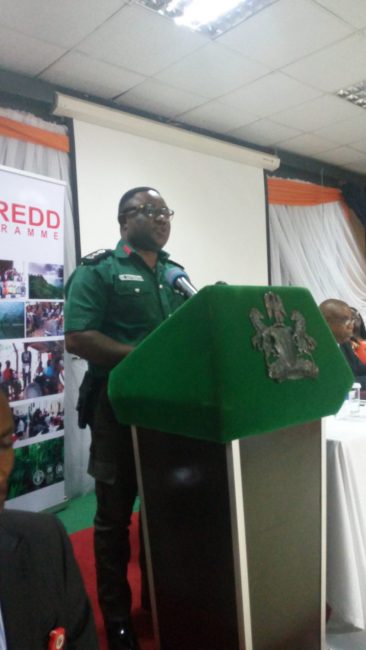Two separate validation workshops held recently within two weeks in Abuja, the federal capital city, and Calabar, the capital city of Cross River State, have set the stage for a somewhat vital next-phase for the UN-REDD Programme in Nigeria.

While the Abuja forum entailed a national authentication of the draft REDD+ document, the Calabar workshop focused essentially on state-related issues, endorsing the Integrated Analyses for the pilot REDD+ programme for Cross River, which is the first state to host the UN initiative in the country.
Following the corrobration of the study analyses (national framework as well as state), Cross River State will embark on the development of a REDD+ strategy that will both inform the national strategy and serve as model for other states, particularly Ondo and Nassarawa states, which have been named as new programme sites.
According to participants, the strategy comprises policy reforms, investment priorities, and a related REDD+ implementation framework, with due monitoring and safeguard systems, as called for under the United Nations Framework Convention on Climate Change (UNFCCC).
The strategy also intends to enhance the value of standing forests and to incentivise sustainable forest management through a multi-stakeholder approach and a green development perspective.
State officials are excited about the development, even as Cross River is gradually coming to the end of the REDD+ readiness phase, preparatory to embracing the implementation stage.
REDD+, which stands for Reducing emissions from deforestation and forest degradation, is a global initiative designed to pay groups or countries for protecting their forests and reducing emissions of greenhouse gas pollutants, especially carbondioxide (CO₂).
Created in 2008, the UN-REDD Programme (United Nations Programme on Reducing Emissions from Deforestation and Forest Degradation) is a collaborative programme of the Food and Agriculture Organisation of the United Nations (FAO), the United Nations Development Programme (UNDP) and the United Nations Environment Programme (UNEP).
Governor Ben Ayade, while commending the UN-REDD+ for the pilot programme in his state, added that “Cross River is REDD+ ready, we have started the Green Police, and the garment factory is ready to produce 3,000 uniforms.”
According to him, the state has been working for the past four years to drive the process, adding that there is political will and commitment to address environmental issues in the state.
Ayade noted that people have been denied access to the forests in the past eight years, saying the time to reap the result of their patience has come.
“People have been kept off from the forest for eight years, UN-REDD, please I’m in hurry to get these people off,” the governor said.
Describing the state as a forest, he disclosed that there is a Green Bill in the works that seeks to prosecute any house that does not have four trees standing. He urged the UN to focus on aggressive tree planting.
He added that he has attested to a Bill to put an end to use of charcoal in the state and implement the use of rice husks to provide briquette to replace charcoal.
On the controversial Super Highway, he said that, being “an enlightened governor”, he had it well thought, and that the controversy generated was needless. He added that all the corridors of the Super Highway would be protected.
Commissioner, Ministry of Climate Change and Forestry, Dr. Alice Ekwu, said the state habours about half of what is left of Nigeria’s rainforest and so was qualified for the REDD+ programme.
Ekwu explained that the programme has been on ground for the past four years and that much as happened in preparing the state for REDD+ readiness stage, which the meeting was set to conclude and move to the investment phase.
She commended the UN-REDD+ Programme for using the state as pilot scheme in the country, saying: “Cross River State is the firstborn of UN-REDD+ in Nigeria.”
Senior Regional Technical Advisor- United Nations Development Programme/UN-REDD+, Elsie Attafuah, who represented the UNDP, in her remarks, commended the federal and Cross River governments on the pilot programme, saying the UN system is committed to the REDD+ programme.
Attafuah noted that climate change presents one of the most compelling challenge and that “together we can do something about it”.
In Abuja the validation workshop on “Integrated Analyses for REDD+ Strategy for Nigeria” provided a unique opportunity to discuss key drivers of deforestation, and policy measures to address them through the REDD+ strategy.
“In Nigeria, Cross River holds the highest amount of the remaining forests and is a major national asset and biodiversity hotspot,” stated Dr Ekwu.
Mandisa Mashologu, Deputy Country Director (Programmes), UNDP Nigeria, described the REDD+ strategy as an opportunity for Nigeria to bring transformational and systemic change to forest management and protection.
